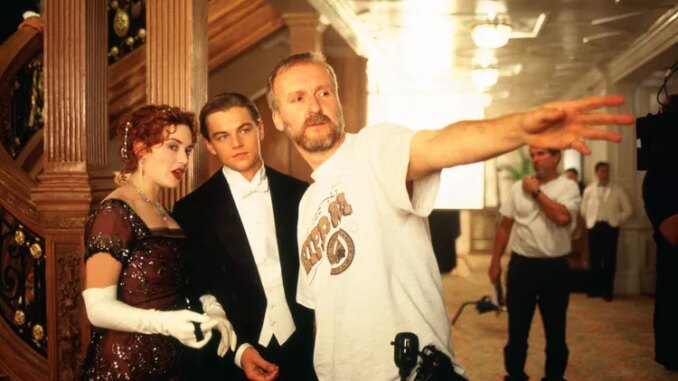
The Unsinkable Legacy: Titanic at 26 and the Celebrity Obsession That Won't Let Go
Twenty-six years have passed since James Cameron's "Titanic" plunged into the cultural depths and surfaced, a glittering behemoth, forever imprinted on the collective consciousness. Yet, even as digital effects advance and historical dramas offer more nuanced perspectives, "Titanic" refuses to fade. It remains a cinematic touchstone, a story so potent that even celebrities, the self-proclaimed arbiters of cool and trend, can't seem to resist its siren song. This enduring fascination, both with the film and the actual tragedy it portrays, reveals a complex interplay of romance, spectacle, and the enduring human fascination with mortality that continues to resonate across generations, even with those who inhabit a world seemingly far removed from steerage class.
The film's initial impact was nothing short of seismic. For many, it was their first cinematic experience, a visceral journey into the past that ignited a passion for history and a deep empathy for the victims. Leonardo DiCaprio and Kate Winslet became overnight superstars, their on-screen chemistry fueling a frenzy of "Jack and Rose" mania. Beyond the swooning romance, however, lay a spectacle of epic proportions. Cameron's meticulous recreation of the doomed vessel, brought to life with cutting-edge visual effects, was breathtaking. The grandeur of the ship, the teeming humanity, and the devastating final plunge combined to create a cinematic experience that was both awe-inspiring and utterly heartbreaking. This spectacle, the sheer scale of the tragedy unfolding on screen, continues to draw audiences in, a testament to the film's enduring power as a visual marvel.
The celebrity obsession with "Titanic" taps into this same primal fascination. For many, the film was a formative experience, shaping their own understanding of love, loss, and the fragility of life. When celebrities, often seen as detached from the struggles of ordinary people, openly profess their love for "Titanic," it humanizes them. It reminds us that they too are susceptible to the power of a well-told story, that they too can be moved by the plight of star-crossed lovers facing insurmountable odds.
Beyond nostalgia, however, lies a more complex motivation. Celebrities often wield cultural influence, and aligning themselves with a beloved and widely respected film like "Titanic" is a strategic move. It's a way to connect with a broader audience, to signal their own cultural literacy, and to subtly position themselves within a narrative of enduring significance. When a celebrity references a famous line from the film, or jokingly recreates a iconic scene, they're not just expressing affection; they're also leveraging the film's cultural capital for their own benefit.
Moreover, the "Titanic" story, at its core, is a story of class division and social injustice. The stark contrast between the opulent lives of the first-class passengers and the cramped quarters of those in steerage resonated then, and continues to resonate today. Celebrities, often occupying the pinnacle of the social and economic hierarchy, may find themselves drawn to the film's implicit critique of inequality, perhaps as a way to demonstrate their own social awareness or to express solidarity with those less fortunate. This isn't to say that their intentions are always purely altruistic, but rather that the film provides a platform for them to engage, however superficially, with important social issues.
However, the constant rehashing of "Titanic" does run the risk of diminishing its emotional impact. The "never let go" memes, the incessant debates about whether Jack could have fit on the door, the endless speculation about alternate endings – all contribute to a kind of cultural fatigue. What was once a profound and moving experience can be reduced to a series of catchphrases and internet jokes, stripping the tragedy of its gravity.
Ultimately, the fact that "Titanic" continues to be a topic of conversation, even among celebrities who seemingly have everything, speaks to the enduring power of storytelling. The film, for all its flaws and melodramatic flourishes, captures something essential about the human condition: our capacity for love, our vulnerability to loss, and our enduring fascination with the grand sweep of history. Whether it's genuine affection, calculated marketing, or a subconscious grappling with social inequality, the celebrity obsession with "Titanic" reveals that even those who inhabit a world of privilege can't resist the allure of a story that resonates with the deepest and most universal of human emotions. And as "Titanic" turns 26, one thing is clear: its legacy, like the iceberg itself, remains a formidable presence, still capable of captivating and, perhaps, even capsizing the cultural landscape.